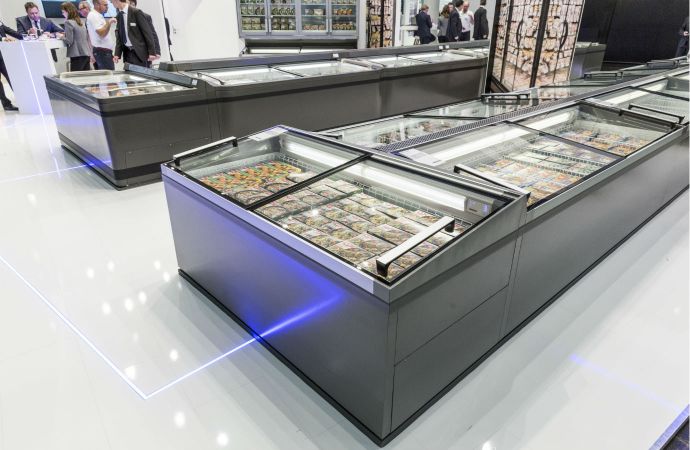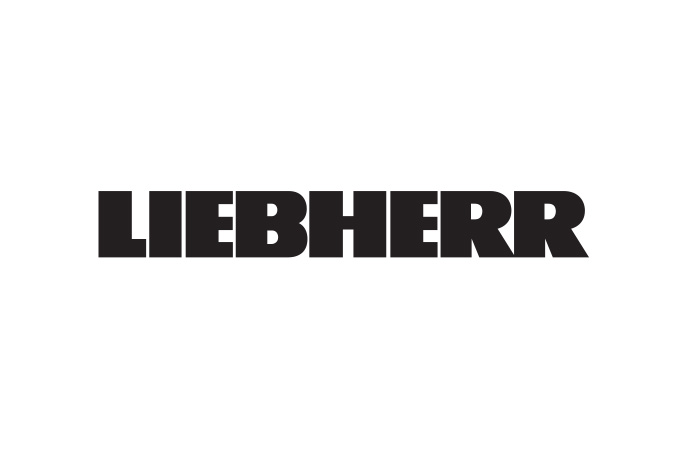The global family-run business presented new hydrocarbon stand-alone cabinets aimed at the commercial market.

The new stand-alone chest freezers at EuroShop
In a bid to enter the lucrative supermarket sector, Liebherr last week showcased its new line of energy-efficient chest freezers at the EuroShop tradeshow in Düsseldorf, Germany, using R290 for larger sizes and R600a for smaller offerings.
The firm is confident its new products will prove popular. “We are 20% better than the competition in terms of energy savings,” Heiko Schulz, International Sales Manager for Food Retail at Liebherr, told hydrocarbons21.com
Schulz cites the company’s investment in research and development at their energy department as a key reason for their ability to save costs for customers.
When Liebherr began to target the supermarket sector, it knew there would be a trade-off between energy efficiency of the product on the one hand and visual appeal on the other.
“I think we have really found the maximum possibility between the display [through the glass freezer door] and energy efficiency,” Schulz said.
He cited the positioning of the block condenser and the fan key as playing central roles in optimising the thermodynamics.
Smart monitoring has also allowed Liebherr to further optimise the product. “We have a very efficient inverter monitoring system that provides very detailed analysis and allows you to remote control the system,” Schulz explained.
German retailers changing US market
German reatilers Aldi have been growing in America recently and Lidl also plans to open new stores soon. “The US is not a traditional plug-in unit [market] but [new retailers] are moving into the US. This means there is a growing interest [in plug-ins] that cannot be satisfied locally,” he said.
Hydrocarbon refrigeration will be the leading technology.”
- Heiko Schulz, Liebherr
New US Department of Energy regulations that come into force next month – not to mention the existing SNAP (Significant New Alternatives Policy) programme – is forcing the market in the United States to move towards propane as an energy-efficient option for plug-in units.
Schulz believes hydrocarbons are the clear answer: “There is some activity with CO2 [as a refrigerant for plug-in units] but I think the technology is not really ready for the market yet.”
“Hydrocarbon refrigeration will be the leading technology,” he said.
Related stories


_1636620968.jpeg)

